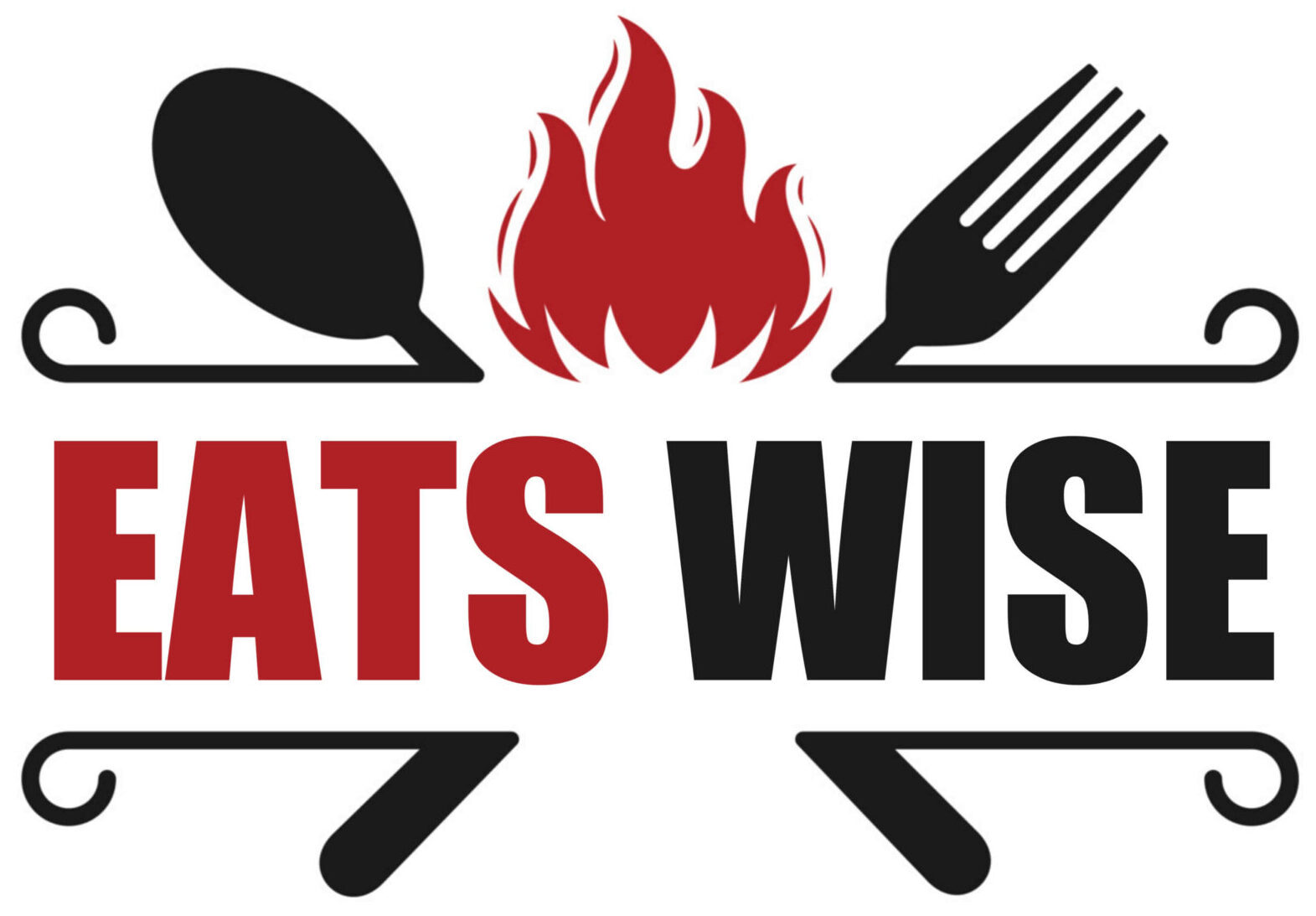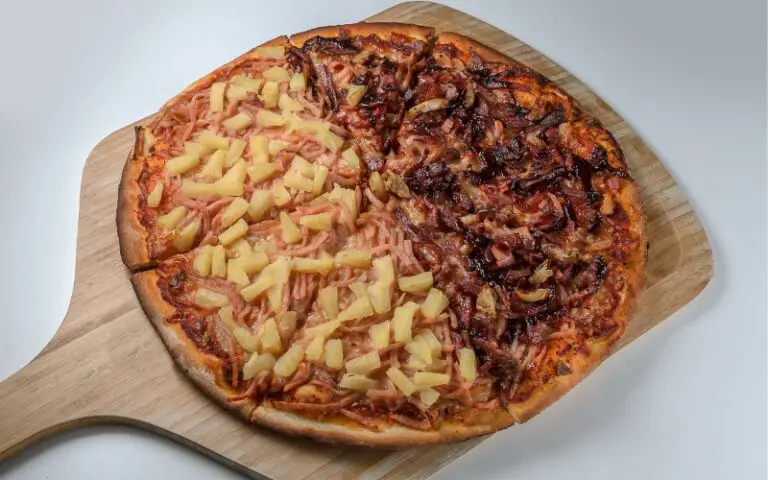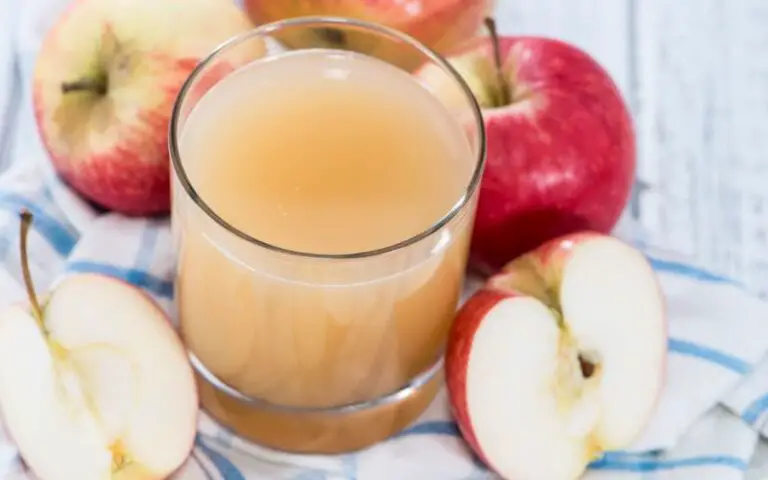Costco Rotisserie Chicken Ingredients! (Must Know Things)
Last updated on October 26th, 2022 at 05:19 pm
Before eating a particular food, it’s important to know the ingredients used in making it.
Knowing the ingredients helps in knowing how suitable the food is and its reaction to your body.
Moreover, there are some food substances that some people with a particular health condition shouldn’t eat.
And it could result from an abnormal allergic reaction to the food. So, let’s find out the ingredients in Costco’s rotisserie chicken.
Costco rotisserie ingredients are whole chicken, water, and seasoning. This seasoning includes salt, dextrose, carrageenan, sodium phosphate, potato dextrin, sugar, modified food starch, and spice extractives. In addition, the most preferred starchy content sources for Costco’s rotisserie chicken are potato and tapioca.
What Are the Ingredients of Costco’s Rotisserie Chicken?
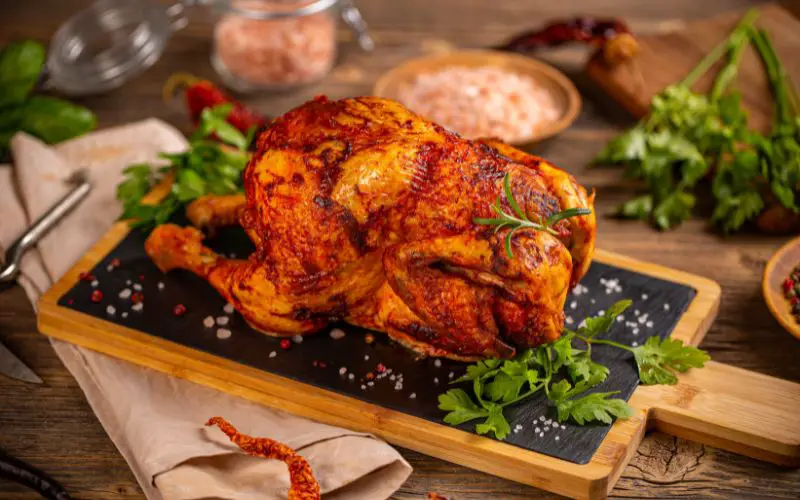
The ingredients of Costco’s rotisserie include the chicken itself, water, sugar, salt, carrageenan, potato dextrin, and modified food starch.
Substances like sodium phosphate and dextrose make Costco’s rotisserie chicken a processed food.
These ingredients are responsible for maintaining the chicken’s freshness and savoriness.
Please keep reading for extensive information on these ingredients, including their natural sources.
#1. Whole Chicken
The chicken is a rich source of protein that repairs worn-out tissues and supports muscle development. The weight of the chicken is about three pounds.
#2. Water
The function of the water is to moisten the chicken and keep it hydrated and fresh.
#3. Sodium Phosphate
This sodium salt is a type of salt that inhibits the growth of bacteria and mold.
In addition, it serves as an emulsifier that allows all other spices to act uniformly on the food.
However, a study proved that phosphate additives could endanger the kidney and result in chronic kidney illnesses.
Hence, excessive consumption of foods with phosphate additives is harmful.
#4. Modified Food Starch
Modified food starch is a product of the extraction and treatment of food starch chemically, enzymatically, or physically.
And the sources of these starchy contents are potato and tapioca.
This modified starch is responsible for the chicken’s light texture, which makes you crave more.
Furthermore, this modified starch helps the chicken withstand high temperatures, extending its shelf-life.
#5. Carrageenan
Carrageenan is commonly used in food production for thickening and stabilizing purposes.
It is obtained from red seaweed and helps the chicken in retaining water.
If carrageenan is present in any Costco rotisserie chicken, you’ll find it written on the label. But you won’t see carrageenan on the product’s label if it doesn’t.
To an extent, carrageenan is safe for human consumption. However, there’s a report that carrageenan has side effects such as colon cancer, inflammation, etc.
#6. Potato Dextrin
Potato dextrin results from the breaking down potato starch through a chemical reaction (hydrolysis).
It has thickening and sweetening properties since it’s from sweet potatoes. Although wheat also supplies dextrin, it will add gluten to the chicken.
So, that’s why Costco goes for a gluten-free source (e.g., potato) for dextrin to make the chicken crispy.
#7. Sugar and Salt
These are for flavoring, preservative, and sweetening purposes. Rather than sprinkling salt on the chickens, Costco chose to brine the chickens by injecting a saline solution into them.
Due to this, many people complain about the chicken being too salty. Hence to reduce the saltiness, apply lemon juice or a small quantity of balsamic vinegar to the chicken.
The acid in lemon juice and vinegar will reduce the saltiness by neutralizing the salt in the chicken.
#8. Dextrose
Dextrose is a sugar obtained from some starchy foods like corn. Similar to glucose, it can serve as a sweetener and preservative.
Furthermore, dextrose has blood-sugar-boosting properties and is helpful for diabetic patients with very low sugar levels.
#9. Spice Extractives
This term generalizes other spicing substances added to the chicken. These additives give the chicken a good taste and a tender texture.
These spices could be from plants, seafood, dairy products, and other suitable preservatives. These substances must be gluten-free.
#10. Nutritional Value
Costco’s rotisserie chicken contains various nutrients with different amounts per one serving of mass 85g (3 oz).
The table below explains them in detail:
| S/N | Nutrients | Amount per serving |
|---|---|---|
| 1. | Calories | 140 Cal |
| 2. | Saturated fats | 2.5g |
| 3. | Total fat | 7g |
| 4. | Trans fat | 0g |
| 4. | Polyunsaturated fat | 0g |
| 5. | Monounsaturated fat | 0g |
| 6. | Cholesterol | 55mg |
| 7. | Sodium | 460mg |
| 8. | Total Carbohydrates | 5g |
| 9. | Dietary fiber | 0g |
| 10. | Sugar | 5g |
| 11. | Protein | 19g |
| 12. | Calcium | 0mg |
| 13. | Potassium | 0mg |
| 14. | Iron | 0mg |
| 15. | Vitamin A, C, and D | 0mg |
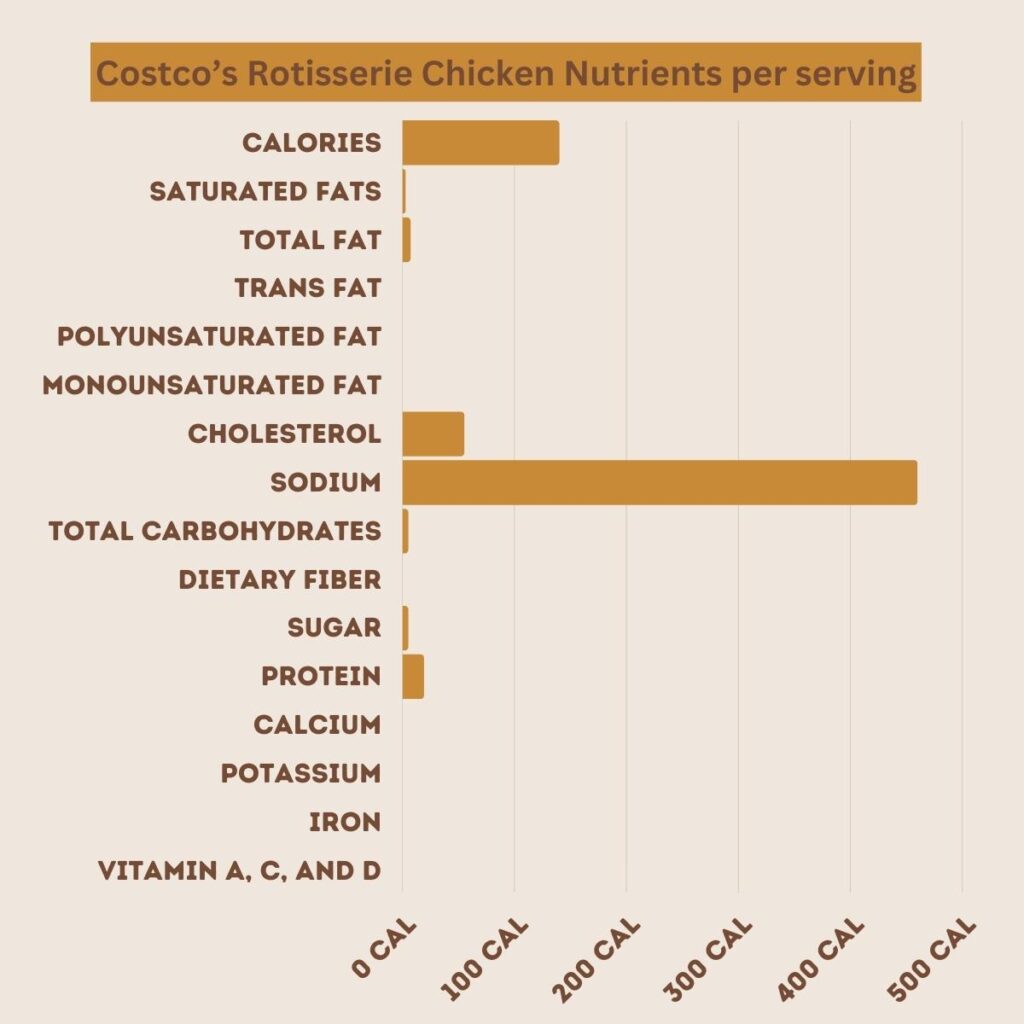
Costco’s rotisserie chickens have high sodium content, which could harm the body of the Consumers when eaten more often.
It could result in the blood pressure skyrocketing and an increased level of water retention, depending on the individual’s sensitivity to salt.
When there’s too much sodium in the blood, the body will try to ensure the water level equates to the sodium level.
The body will start storing water in areas like the hands and feet, causing obesity.
If the weight gain doesn’t get immediate intervention, the condition will worsen, putting the individual at risk of cardiovascular disease.
Is Costco Rotisserie Chicken Gluten-free?
Costco rotisserie chickens are 100% gluten-free. Hence if you’re gluten-sensitive, consuming this chicken isn’t harmful.
The reason is that none of the ingredients in making this chicken has a trace of gluten.
And the sources of all its starchy properties are potatoes and tapioca, not wheat or yeast.
However, some grocery stores add flour to the chicken when cooking it to make it crispy. And this introduces gluten to the chicken.
But for Costco’s chicken, they crisp on their own or with the use of potato dextrin.
Moreover, Costco’s chicken comes from their poultry farm and processing unit. And the supply and quality of the chickens are under Costco’s supervision.
Furthermore, they prepare these chickens in a gluten-free environment, making them unlikely to be contaminated by gluten.
Are there any Chemicals in Costco’s Rotisserie Chicken?
There are no chemicals in Costco’s rotisserie chicken. It has no artificial flavors, colorings, or preservatives.
The only things in the chicken are its natural ingredients without artificial flavors, colorings, and preservatives.
However, Costco injects the meat with a saline solution to brine them and increases sodium to 460 mg. Brining is another healthy way of salting food.
Costco chooses to brine rather than sprinkle salt to make the chicken soft and give it a good flavor. The saline solution contains just salt solution and nothing more.
Also, Costco’s chicken doesn’t use antibiotics to make the chicken bigger but only for treating and preventing diseases in the birds.
Does Costco’s Rotisserie Chicken Have MSG?
Costco’s rotisserie chicken doesn’t have MSG (Monosodium Glutamate).
Instead, the meat gets its taste enhancement from other seasonings like salt, sugar, dextrose, and spice extractives.
MSG has good taste-enhancing properties. However, Costco’s chicken has enough sodium content from Sodium phosphate and other seasonings.
Hence, adding MSG would mess up the meat with too much sodium content and make the food unhealthy.
Excessive consumption of sodium by the body deters one’s health and can result in obesity.
Final Thoughts
Costco’s rotisserie chicken contains natural ingredients such as whole chicken, water, seasonings, and spice extractives. It doesn’t have gluten-rich wheat or yeast.
Also, there’s no MSG in the chicken because MSG would increase the sodium beyond its initial amount–460mg. Besides, too much sodium is highly dangerous to one’s health.
